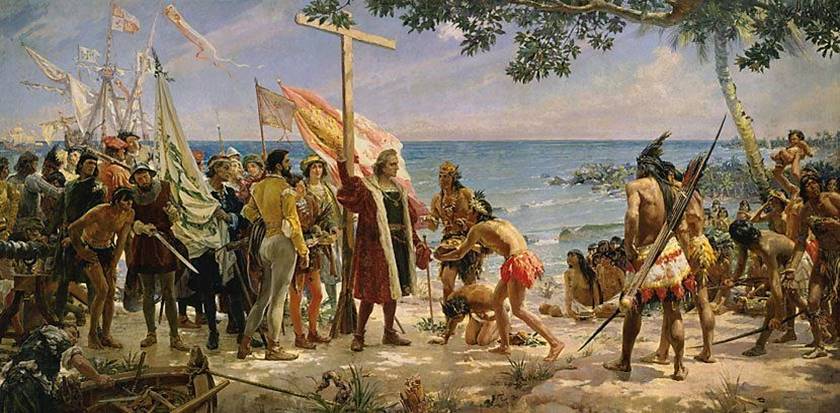It’s hard to believe it given the fire hose of news recently, but it’s been less than a month since President Trump convened an impromptu “history conference” at the National Archives and announced a new commission to promote what he’s calling a “patriotic education” curriculum. As someone who studied and works at the intersection of history, education, and democracy, I find the proposal equal parts absurd and chilling.
Absurd, of course, because school curriculum in the U.S. falls under state and local authority. This is due in part to Republicans’ rejection of centralized education, illustrated by resistance to the Common Core despite the fact that it was a project of governors and state education officials, not the federal government. There’s value in the concept of local control of education, but we should also acknowledge that it’s a system that’s been promoted to protect school segregation and racist curricula. In any case, as Alana Wise noted, “The federal government does not have jurisdiction over school curriculum.”
Although Trump can’t directly dictate curriculum, the threat of losing federal funding will be a serious concern for schools if Trump is re-elected. Just recently, another executive order prohibiting government contractors from requiring diversity & inclusion training has had a chilling effect on diversity efforts in higher education. Around the same time, the Department of Education opened a civil rights investigation into Princeton University because it acknowledged systemic racism (this while the Trump Administration continues to target affirmative action). It’s feasible to imagine a DoE ruling that schools using language like anti-racism or referencing the 1619 Project could face investigations or penalties, making them just another casualty in the culture war.
Combine “patriotic education” with MOOC education models and the growing influence of ed tech companies and shrinking education budgets and we’ve got a serious problem. Taken to its extreme, this fetishized convergence of nationalism, capitalism, and technology would produce an education system where districts serving the poorest students could be drip-fed a video stream of American exceptionalism talking points masquerading as education–a state-funded version of the propaganda already produced by outlets like PraegerU.
Education–including the tensions it embodies–is foundational to American democracy. Our Founders were clear that education is fundamental to the development of American citizens. And as more Americans received the right to vote, this became increasingly important throughout our history as more groups secured their place in the electorate.
There are a lot of young Americans who feel disenfranchised today, and there’s no doubt our democracy is weakened in the absence of civic understanding. But any talking point that involves browbeating or re-educating them isn’t meant to restore our civil society. It’s meant as red meat to those who believe young people should be programmed with a specific set of beliefs or forfeit their claims to being an American. This is the opposite of the vision of education for American citizens, and must be understood as the threat to democracy it is.
